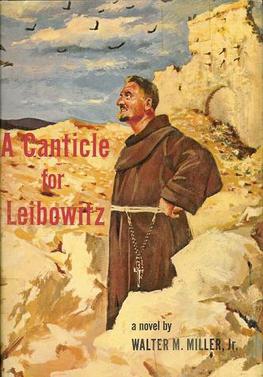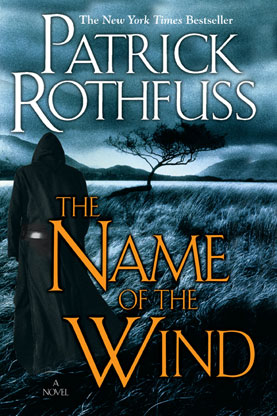 Warbreaker by Brandon Sanderson
Warbreaker by Brandon Sanderson
4 out of 5 stars
Read in July 2009
Brandon does it again – “it” being his uncanny ability to create female characters that I immediately relate to, like and care about. Not only one, but two of them – Vivenna, the eldest, wisest, best prepared sister, and Siri, the youngest, kindest, most frivolous one. But don’t let those stereotypes delude you. Brandon turns both of these types around, on their heads and sideways and I’m convinced you’ll be pleased with the results.
The magic system in Warbreaker was a tad creepy at times, especially if you believe, as I did, that Breath is equivalent to your soul. Breath is traded, bartered, bought and sold, so you can literally sell your soul in the world of Warbreaker. The accumulation of Breath creates a social hierarchy in T’Telir readily apparent to citizens, priests, and the resident “gods” (i.e. the Returned). The more Breath you acquire, the more abilities and perceptions you enhance, including extending your life indefinitely. The use and study of Breath is ongoing so a future exploration is possible in another story.
Most of the story dealt with the political intrigue in and around the Court of Gods and the seemingly imminent war between Hallandren and Idris. The two sisters, Vivenna and Siri, are princesses of Idris, a breakaway province of Hallandren. Siri is sent to T’Telir to fulfill a twenty year old treaty obligation to provide a royal bride to the God King in Vivenna’s place. Vivenna follows Siri to the city, ostensibly to rescue Siri, but really to fight her inner battle against suddenly being useless and unimportant. How these two sisters deal with the circumstances they find themselves thrust into is the heart of this story.
Other characters of note include Lightsong, a Returned denying his divinity with every witty fiber of his being; Vasher, a ruthless Awakener burdened with the sentient irresistibly destructive sword Nightblood; and Denth, a likeable mercenary who takes Vivenna under his protection soon after her arrival in T’Telir.
The action quickens in the last fifth of the book to the point where I had to re-read several paragraphs because I kept skipping ahead with the implied breakneck pace of the story.
My only quibble with the story would be a lack of return to Idris, especially from the point of view of Vivenna and Siri’s father. Once both sisters are in T’Telir, we never return to their homeland nor hear anything from their family. Lastly, the wrap-up at the end, especially surrounding Vasher, Denth, Nightblood and Lightsong, wasn’t convincing enough for me. It seemed too convenient and too rushed.
I still enjoyed the story and am very grateful that it’s a standalone epic fantasy tale with no cliffhanger ending. Recommended for all fantasy lovers.
 A Canticle for Leibowitz by Walter M. Miller Jr.
A Canticle for Leibowitz by Walter M. Miller Jr.








